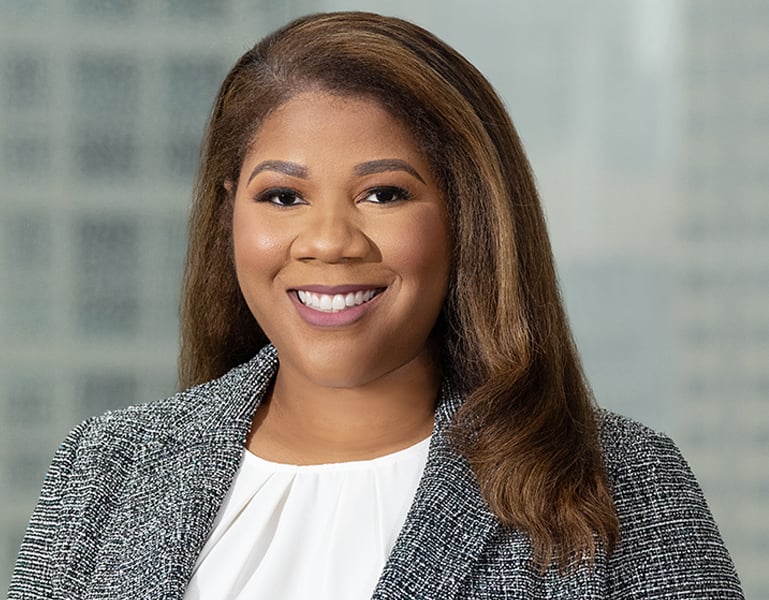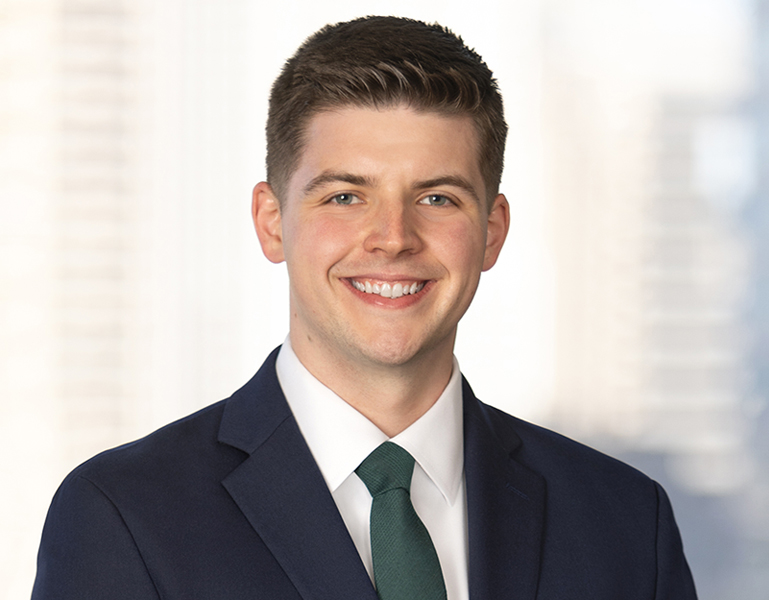Illinois Employment Law Watch New and Upcoming Employment Law Developments
Various new laws impacting employers have been or will soon be enacted in Illinois. Employers should take note of the following non-exhaustive list of recent, key developments.
Amendments to Equal Pay Act (HB2488)
On June 30, 2025, HB2488 broadened the definition of “business” as it appears in the Illinois Equal Pay Act’s (IL EPA) Equal Pay Registration Certificate (EPRC) requirement. Under the amended IL EPA, any private employer with 100 or more Illinois employees will be required to submit demographic and wage data to the Illinois Department of Labor (IDOL). Previously, the EPRC requirement was linked to whether an employer was subject to federal EEO-1 reporting requirements.
The amended IL EPA further clarifies that “prevailing wage” means “hourly cash wages plus full journeyman annualized fringe benefits for training and apprenticeship programs registered with the Office of Apprenticeship within the U.S. Department of Labor’s Employment and Training Administration.”
Amendments to Prevailing Wage Act (SB1344)
On June 30, 2025, SB1344 amended the Prevailing Wage Act (PWA) to expand both the definition of “public works” and the statute’s enforcement provisions. The term “public works” now includes “sewer inspection projects that use a closed-circuit television to identify issues in a sewer system, such as cracks in pipes, root intrusion, blockages, or other structural damage.”
The amended PWA also includes expanded enforcement provisions which provide for penalties of $1,000 – $2,000 per offense for failing to file certified payrolls for any public work projects.
Amendments to Military Leave Act (SB0220)
On August 1, 2025, SB0220 amended the Military Leave Act (formerly titled the “Family Military Leave Act”) to require employers with 51 or more employees to provide qualified employees with up to 8 hours of paid leave per calendar month, and up to 40 hours per calendar year, to participate in a funeral honors detail. Employees who qualify for paid leave under the amended Military Leave Act include employees trained to participate in a funeral honors detail at the funeral of a veteran and who are either: 1) a retired or active member of the armed forces or of a reserve component of the armed forces, or 2) an authorized provider or registered member of an authorized provider, including a member of a veterans service organization. Qualified employees must provide reasonable notice of their need for time off, and an employer may request proof of an employee’s participation in the funeral honors detail.
Amendments to Illinois Wage Payment and Collection Act (SB2164)
Effective August 1, 2025, SB2164 retroactively amended the Illinois Wage Payment and Collection Act (IWPCA) to bolster its administrative enforcement provisions. Pursuant to the amendment, if the IDOL issues an adverse decision against an employer and the employer fails to timely seek review of the order in court or pay the wages and penalties due, the State may use “all remedies available under the law” to collect payment, and the IDOL’s order may be enforced in the same manner as any civil court judgment. The amendment also clarifies the manner in which damages and penalties accrue when an employee seeks enforcement with the IDOL and raises the amount of non-waivable administrative fees due to the IDOL following an order to pay wages.
Amendments to Illinois Human Rights Act (HB3773)
Effective January 1, 2026, it will be a civil rights violation under the Illinois Human Rights Act (ILHRA) for an employer to use artificial intelligence (AI) in making an employment-related decision if such use has the effect of discriminating against an employee based on a protected class. The amendment further prohibits employers from using zip codes as a proxy for any protected class under the ILHRA. The Illinois Department of Human Rights is expected to issue rules before January regarding the required notice employers must provide to employees before using AI in a vast list of employment-related decisions.
Amendments to Nursing Mothers in the Workplace Act (SB0212)
Effective January 1, 2026, pursuant to SB0212, which amends the Nursing Mothers in the Workplace Act, employers will be required to provide reasonable break time—at the employee’s regular rate of pay—for a nursing mother to express breast milk for up to one year following the birth of a child.
Chicago Municipal Employment Laws Update
Chicago Fair Workweek Ordinance (MCC 6-110)
The Chicago Fair Workweek Ordinance (CFWO) requires that employers in certain industries (building services, healthcare, hotels, manufacturing, restaurants, retail, and warehouse services) provide extra compensation, or “predictability pay,” to covered employees when a schedule change is made within a certain timeframe of his or her original start time. Effective July 1, 2025, a covered employee must make no more than $36.60/hour (or $62,561.90/year) to be eligible for predictability pay and other benefits under the CFWO.
Chicago Paid Leave and Paid Sick and Safe Leave Ordinance (MCC 6-130)
Effective July 1, 2025, “Medium Employers,” or those with between 51 and 100 covered employees, must pay out all unused, accrued Paid Leave as part of an employee’s final compensation. As of the same date, covered employees now have a private right of action to recover damages for violations of the Paid Leave provisions of the Ordinance. Until July 1, 2026, however, employers have 16 days or until the payday for the next regular payroll period (whichever comes first) to cure known Paid Leave violations before an employee can sue. Previously, employees only had a private right of action as to Paid Sick Leave. Damages under the Ordinance include three times the full amount of any leave denied or lost, along with interest, costs, and reasonable attorney’s fees.
For more information or an update on the above-listed bills, laws, and ordinances, please contact Ariel M. Kelly at akelly@vedderprice.com, Michael D. Considine at mconsidine@vedderprice.com or any Vedder Price attorney with whom you have worked.
Vedder Thinking | Articles Illinois Employment Law Watch New and Upcoming Employment Law Developments
Article
August 21, 2025
Various new laws impacting employers have been or will soon be enacted in Illinois. Employers should take note of the following non-exhaustive list of recent, key developments.
Amendments to Equal Pay Act (HB2488)
On June 30, 2025, HB2488 broadened the definition of “business” as it appears in the Illinois Equal Pay Act’s (IL EPA) Equal Pay Registration Certificate (EPRC) requirement. Under the amended IL EPA, any private employer with 100 or more Illinois employees will be required to submit demographic and wage data to the Illinois Department of Labor (IDOL). Previously, the EPRC requirement was linked to whether an employer was subject to federal EEO-1 reporting requirements.
The amended IL EPA further clarifies that “prevailing wage” means “hourly cash wages plus full journeyman annualized fringe benefits for training and apprenticeship programs registered with the Office of Apprenticeship within the U.S. Department of Labor’s Employment and Training Administration.”
Amendments to Prevailing Wage Act (SB1344)
On June 30, 2025, SB1344 amended the Prevailing Wage Act (PWA) to expand both the definition of “public works” and the statute’s enforcement provisions. The term “public works” now includes “sewer inspection projects that use a closed-circuit television to identify issues in a sewer system, such as cracks in pipes, root intrusion, blockages, or other structural damage.”
The amended PWA also includes expanded enforcement provisions which provide for penalties of $1,000 – $2,000 per offense for failing to file certified payrolls for any public work projects.
Amendments to Military Leave Act (SB0220)
On August 1, 2025, SB0220 amended the Military Leave Act (formerly titled the “Family Military Leave Act”) to require employers with 51 or more employees to provide qualified employees with up to 8 hours of paid leave per calendar month, and up to 40 hours per calendar year, to participate in a funeral honors detail. Employees who qualify for paid leave under the amended Military Leave Act include employees trained to participate in a funeral honors detail at the funeral of a veteran and who are either: 1) a retired or active member of the armed forces or of a reserve component of the armed forces, or 2) an authorized provider or registered member of an authorized provider, including a member of a veterans service organization. Qualified employees must provide reasonable notice of their need for time off, and an employer may request proof of an employee’s participation in the funeral honors detail.
Amendments to Illinois Wage Payment and Collection Act (SB2164)
Effective August 1, 2025, SB2164 retroactively amended the Illinois Wage Payment and Collection Act (IWPCA) to bolster its administrative enforcement provisions. Pursuant to the amendment, if the IDOL issues an adverse decision against an employer and the employer fails to timely seek review of the order in court or pay the wages and penalties due, the State may use “all remedies available under the law” to collect payment, and the IDOL’s order may be enforced in the same manner as any civil court judgment. The amendment also clarifies the manner in which damages and penalties accrue when an employee seeks enforcement with the IDOL and raises the amount of non-waivable administrative fees due to the IDOL following an order to pay wages.
Amendments to Illinois Human Rights Act (HB3773)
Effective January 1, 2026, it will be a civil rights violation under the Illinois Human Rights Act (ILHRA) for an employer to use artificial intelligence (AI) in making an employment-related decision if such use has the effect of discriminating against an employee based on a protected class. The amendment further prohibits employers from using zip codes as a proxy for any protected class under the ILHRA. The Illinois Department of Human Rights is expected to issue rules before January regarding the required notice employers must provide to employees before using AI in a vast list of employment-related decisions.
Amendments to Nursing Mothers in the Workplace Act (SB0212)
Effective January 1, 2026, pursuant to SB0212, which amends the Nursing Mothers in the Workplace Act, employers will be required to provide reasonable break time—at the employee’s regular rate of pay—for a nursing mother to express breast milk for up to one year following the birth of a child.
Chicago Municipal Employment Laws Update
Chicago Fair Workweek Ordinance (MCC 6-110)
The Chicago Fair Workweek Ordinance (CFWO) requires that employers in certain industries (building services, healthcare, hotels, manufacturing, restaurants, retail, and warehouse services) provide extra compensation, or “predictability pay,” to covered employees when a schedule change is made within a certain timeframe of his or her original start time. Effective July 1, 2025, a covered employee must make no more than $36.60/hour (or $62,561.90/year) to be eligible for predictability pay and other benefits under the CFWO.
Chicago Paid Leave and Paid Sick and Safe Leave Ordinance (MCC 6-130)
Effective July 1, 2025, “Medium Employers,” or those with between 51 and 100 covered employees, must pay out all unused, accrued Paid Leave as part of an employee’s final compensation. As of the same date, covered employees now have a private right of action to recover damages for violations of the Paid Leave provisions of the Ordinance. Until July 1, 2026, however, employers have 16 days or until the payday for the next regular payroll period (whichever comes first) to cure known Paid Leave violations before an employee can sue. Previously, employees only had a private right of action as to Paid Sick Leave. Damages under the Ordinance include three times the full amount of any leave denied or lost, along with interest, costs, and reasonable attorney’s fees.
For more information or an update on the above-listed bills, laws, and ordinances, please contact Ariel M. Kelly at akelly@vedderprice.com, Michael D. Considine at mconsidine@vedderprice.com or any Vedder Price attorney with whom you have worked.

